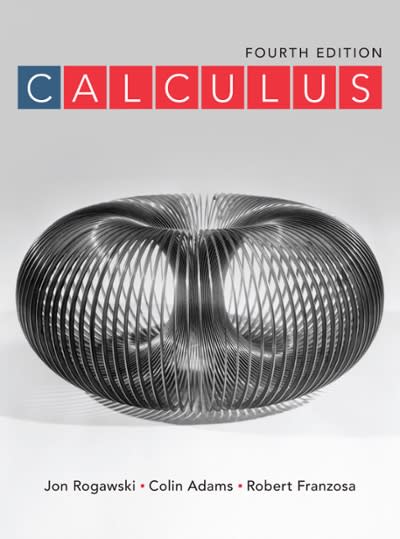Let (I=iint_{mathcal{S}} mathbf{F} cdot d mathbf{S}), where [ mathbf{F}(x, y, z)=leftlanglefrac{2 y z}{r^{2}},-frac{x z}{r^{2}},-frac{x y}{r^{2}}ightangle ] (left(r=sqrt{x^{2}+y^{2}+z^{2}}ight))
Question:
Let \(I=\iint_{\mathcal{S}} \mathbf{F} \cdot d \mathbf{S}\), where
\[
\mathbf{F}(x, y, z)=\left\langle\frac{2 y z}{r^{2}},-\frac{x z}{r^{2}},-\frac{x y}{r^{2}}ightangle
\]
\(\left(r=\sqrt{x^{2}+y^{2}+z^{2}}ight)\) and \(\mathcal{S}\) is the boundary of a region \(\mathcal{W}\).
(a) Check that \(\mathbf{F}\) is divergence free.
(b) Show that \(I=0\) if \(\mathcal{S}\) is a sphere centered at the origin. Explain why the Divergence Theorem cannot, however, be used to prove this.
Fantastic news! We've Found the answer you've been seeking!
Step by Step Answer:
Related Book For 

Question Posted:





